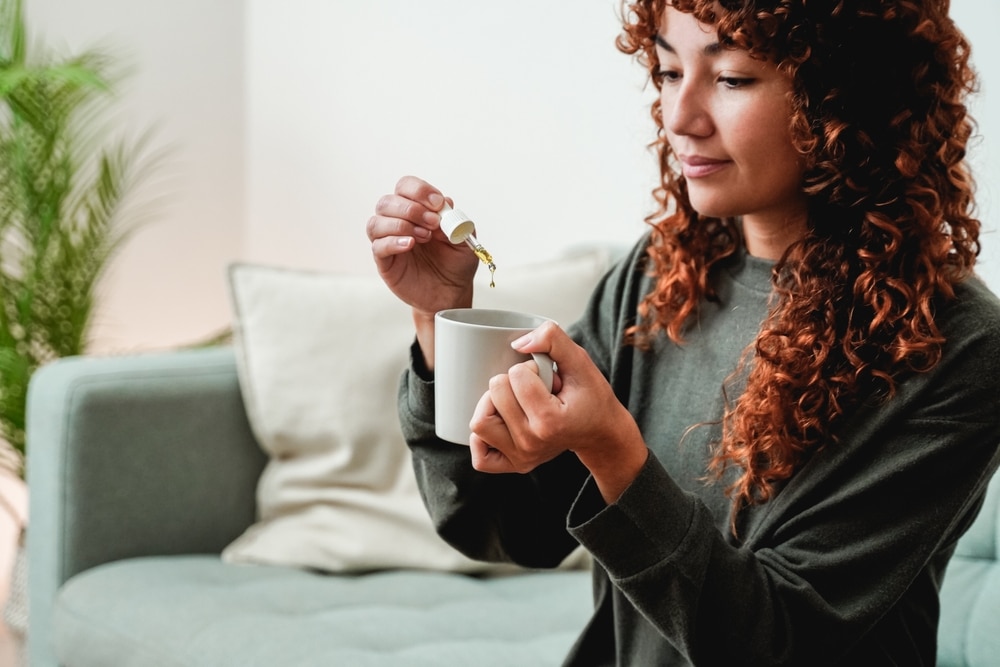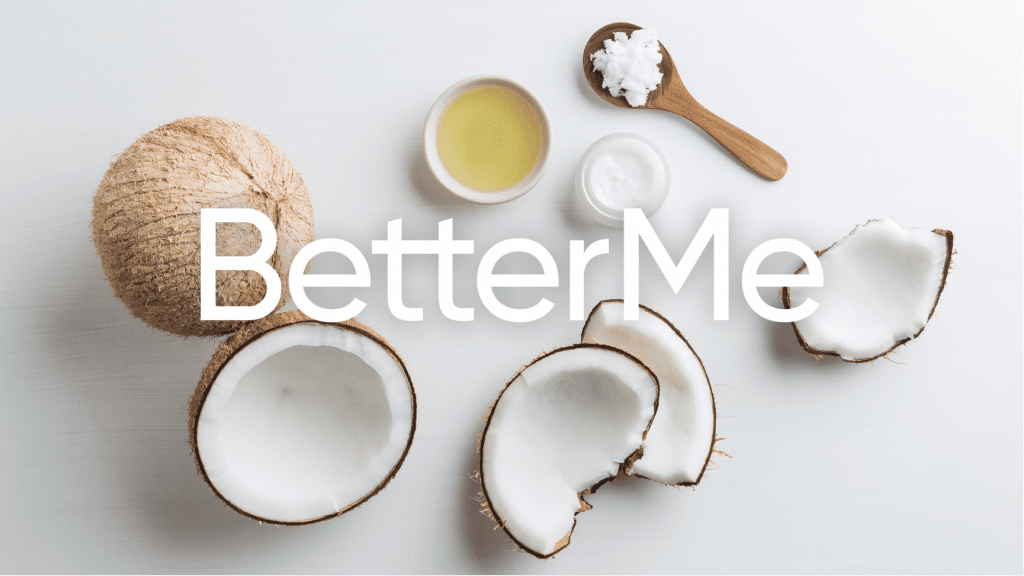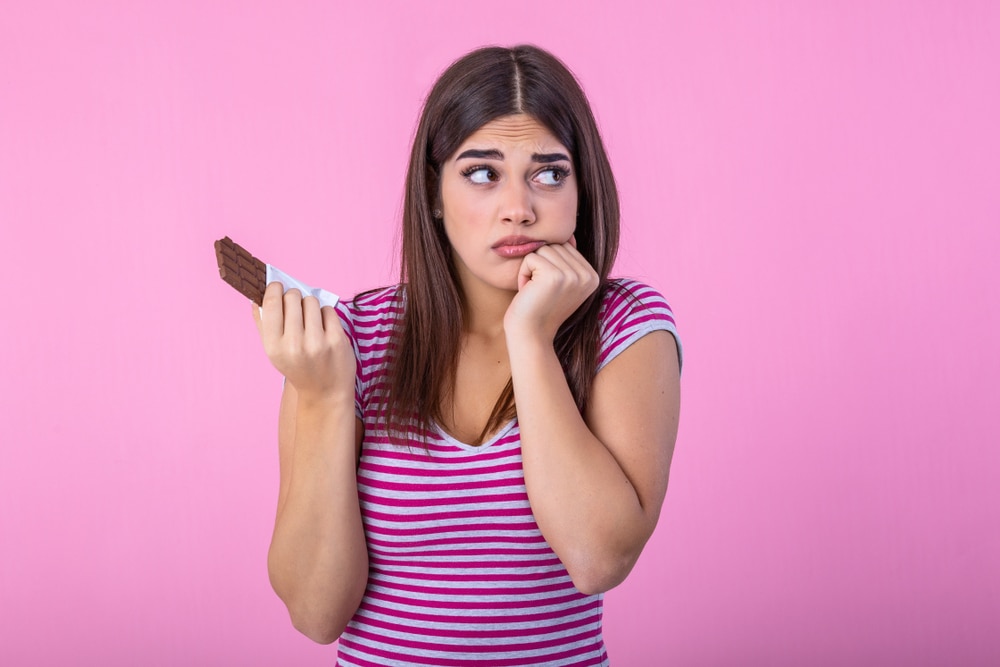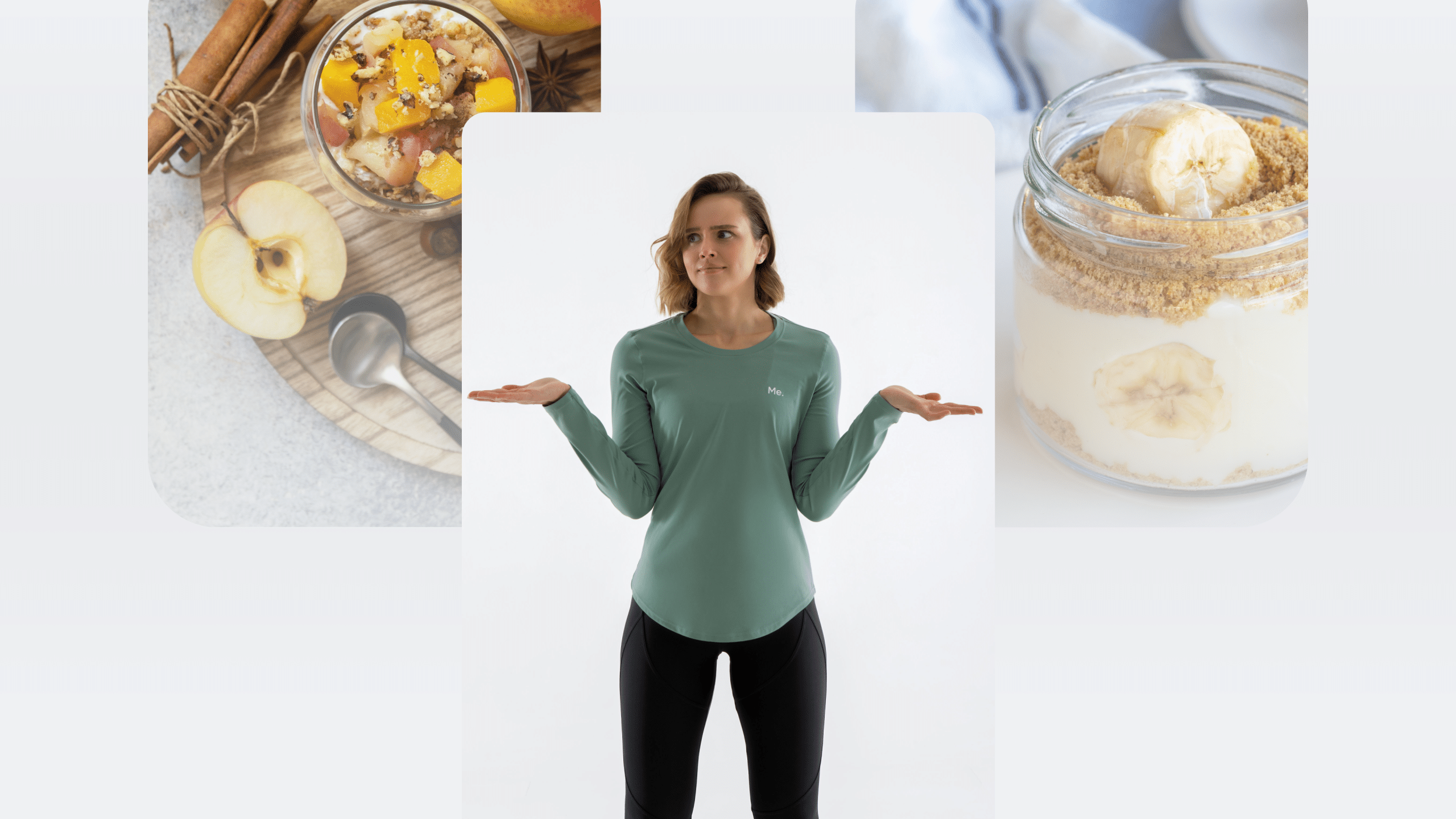Do you suffer from constant uneasiness? Do you experience worry, nervousness, and uneasiness throughout the day? Hectic work routines and demanding chores can get the best of us. As a result, we fall into a vicious trap of self-doubt and worry owing to unmitigated stress. If you experience such symptoms, chances are that you suffer from anxiety. Anxiety is quite prevalent nowadays. So much so that nearly everybody goes through such a state at one or multiple points in their lives. Research suggests that over 33% of people may experience an anxiety disorder (1). While stress may be a common cause of anxiety, having vitamin deficiencies may also affect our mood (2). As an adjunct to medication, taking certain vitamins and supplements may boost our mood and make us feel happier. They are not a substitute for any prescribed treatments, so always talk to your healthcare provider first. If you were looking for a vitamin for anxiety, you have landed at the right place. Below, we have compiled a list of anxiety vitamins that could supercharge your mental health and make you feel better.
What Is The Best Vitamin For Stress And Anxiety?
Before learning about various vitamins, it is crucial to understand why we experience anxiety in the first place.
When we are under stress, our bodies produce cortisol, a hormone produced as part of our body’s fight or flight mechanism. Cortisol works like an internal adrenaline that helps our body experience safety. As the cortisol level increases, we may experience mood swings, leading to uneasiness or anxiety.
Taking vitamins might improve our mood and positively impact our mental health. However, considering vitamins as the sole source of treatment is not enough. Vitamins must be taken alongside anxiety medications, a balanced diet, and psychological therapies to be completely effective.
When planning to take any vitamin for anxiety and stress, consult your physician, especially when you already take other medications.
Read More: Breathing For Focus: Improve Concentration & Reduce Anxiety With These Simple Steps
What Vitamin Is Good For Anxiety?
Vitamins come in two forms, water-soluble and fat-soluble. Water-soluble vitamins are generally excreted relatively quickly, whereas fat-soluble vitamins can be stored in the body.
The following list of fat-soluble vitamins may help you decide if you are wondering what the best vitamin good for anxiety is.
Vitamin E
Vitamin E is normally known as a beauty drug for improving skin tone and supporting healthy hair and nails. Surprisingly, the deficiency of vitamin E may lead to anxiety.
According to research, vitamin E is a natural antioxidant that may combat symptoms of Generalized Anxiety Disorder (3). Antioxidants also reduce free radicals in the body responsible for causing oxidative stress.
Vitamin A
While being excellent for vision, vitamin A is also linked with anxiety, as people suffering from anxiety have lower vitamin A levels. Taking vitamin A supplements may help relieve GAD symptoms, according to research (4).
Vitamin D
In addition to promoting bone development, vitamin D may play a significant role in alleviating anxiety and depression. It helps regulate mood and brain function. Several studies have established a link between vitamin D levels and anxiety. Preliminary research suggests that vitamin D supplements may relieve anxiety symptoms and make us feel better (5).
When we spend time under the sun, our bodies automatically make vitamin D due to exposure to sunlight. This is known as vitamin D3. Vitamin D is also present in various foods such as salmon and mackerel.
Dropping pounds by the dozens without putting yourself through the wringer is everyone’s weight loss pipe dream. But what if we told you that the BetterMe app can make that happen? Keep yourself in prime shape with our fat-blasting workouts, delicious budget-sparing recipes, and body-transforming challenges with our app!
How Much Vitamin D For Anxiety?
The daily recommended intake of vitamin D is 600 IU in the US (9). However, typical supplemental doses in studies range from 1000 to 4000 IU per day (9). Talk to your healthcare provider about having your vitamin D status checked and ask for an individualized dosage recommendation.
What Are The Water-Soluble Vitamins For Anxiety?
Now that you have learned about fat-soluble vitamins, check out the minerals and water-soluble vitamins for anxiety:
Magnesium
Magnesium is one of the most important minerals in the body, responsible for the effective functioning of major systems, such as nerve and muscle function. While magnesium is not a vitamin, it has been found to improve anxiety-related symptoms in some people.
A 2016 review found that magnesium benefited people suffering from mild anxiety and anxiety related to premenstrual syndrome (5). Magnesium is found in whole wheat, spinach, almonds, dark chocolate, etc. If you take supplements, a low dose, such as 100 mg daily, is advisable to avoid diarrhea since magnesium can act as a laxative in high doses.
B-Complex
B-Complex is a collection of eight vitamins belonging to the B group that plays a vital role in producing red blood cells or maintaining cognitive function.
Vitamin B1
Vitamin B1, or thiamin, is an essential vitamin which is sometimes used to treat anxiety. It may relieve anxiety by regulating nervous system function.
Vitamin B6
Vitamin B6 or pyridoxine may influence the levels of serotonin and GABA that help control anxiety and depression.
Also, several studies have shown that many women reported feeling better and less anxious by taking a supplement of magnesium and vitamin B6 for anxiety related to pre menstrual syndrome (6).
Vitamin B9
Folic acid deficiency may be associated with depression and anxiety. If this is the case, taking vitamin B9 or folic acid supplements should make them feel better generally.
Vitamin B12
In addition to preventing deficiency, vitamin B12 may help alleviate anxiety while maintaining the normal functioning of the nervous system.
B vitamins are involved in the production and regulation of neurotransmitters which regulate mood (7). B vitamins are generally present in animal-based foods and grains. Many studies that looked at B vitamin supplementation and anxiety used a B complex vitamin which provided a few or all of the B vitamins.
Vitamin C
Vitamin C is an excellent antioxidant that may help improve mood, especially in those with low vitamin C status or deficiency.
Read More: 8 Healthy Ways To Deal With Anxiety And Stress
How Much Vitamin C For Anxiety?
Vitamin C deficiency may lead to fatigue and depression. Taking an adequate amount of vitamin C should alleviate anxiety which is related to low vitamin C status.. Vitamin C must be taken daily for effective results.Speak to your healthcare provider about an appropriate dosage for you (8).
Which Vitamin Is Best For Anxiety?
Several fat-soluble and water-soluble vitamins and minerals are might relieve anxiety and improve symptoms Unless you know you have a specific deficiency, a multivitamin and mineral supplement that includes B complex, magnesium, and vitamins D, C, A, and E among others might be a place to start. Always talk to your healthcare provider for individualized recommendations. And remember that vitamins and other supplements are not a substitute for your prescribed treatment.
The Bottom Line
Vitamins can be a helpful addition to managing anxiety, especially when taken alongside therapy and other prescribed treatments. Although there is no one-size-fits-all solution to managing anxiety, incorporating certain vitamins into your daily routine might ease symptoms and improve overall well-being.
With the right approach and guidance, the intake of vitamins for anxiety may effectively promote a more balanced and healthy state of mind.
DISCLAIMER:
This article is intended for general informational purposes only and does not address individual circumstances. It is not a substitute for professional advice or help and should not be relied on to make decisions of any kind. Any action you take upon the information presented in this article is strictly at your own risk and responsibility!
SOURCES:
- Epidemiology of anxiety disorders in the 21st century (2015, semanticscholar.org)
- The Effects of Four-Week Multivitamin Supplementation on Mood in Healthy Older Women: A Randomized Controlled Trial (2016, ncbi.nlm.gov)
- Role of antioxidants in generalized anxiety disorder and depression (2016, ncbi.nlm.gov)
- Relationship between vitamin D deficiency and psychophysiological variables: a systematic review of the literature (2021, ncbi.nlm.gov)
- The effects of magnesium supplementation on subjective anxiety (2016, eprints.whiterose.ac.uk)
- Preventive and Therapeutic Potential of Vitamin C in Mental Disorders (2018, pubmed.ncbi.nlm.nih.gov)
- A Systematic Review and Meta-Analysis of B Vitamin Supplementation on Depressive Symptoms, Anxiety, and Stress: Effects on Healthy and ‘At-Risk’ Individuals (2019, ncbi.nlm.gov)
- Effects of Oral Vitamin C Supplementation on Anxiety in Students (2015, ScienceAlert)
- Vitamin D (n.d., ods.od.nih.gov)













